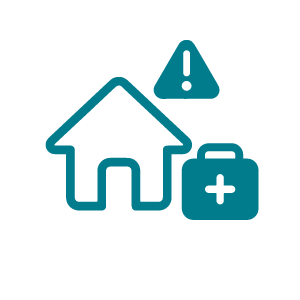

Programme Scope
This workstream aims to support increasing capacity and capability to prepare for, respond to and recover from all-hazards public health events and emergencies within UKOTs, in line with the International Health Regulations (IHR) and global best practice and guidance.
This workstream works collaboratively with colleagues in the UKOTs to support emergency planning on topics such as: fundamentals of EPRR – emergency management cycle, command structures, Joint Emergency Service Interoperability Programme principles; development / peer review of health emergency response plans; After Action Review and continuous improvement; Public Health Emergency Operations Centres (PHEOC).
Workstream Focus
-
Develop relationships between emergency planning teams within the UKOTs and UKHSA.
-
Build capacity for EPRR, with an all-hazards perspective through a suite of training materials and knowledge exchange.
-
Strengthen interoperable working arrangements before, during and after public health events and emergencies.
Example Projects
- EPRR fundamentals training delivered to multiagency audience in Cayman.
Key Resources
-
Dausey et al., (2007) Designing and conducting tabletop exercises to assess public health preparedness for manmade and naturally occurring biological threats: https://www.researchgate.net/publication/6301429_Designing_and_Conducting_Tabletop_Exercises_to_Assess_Public_Health_Preparedness_for_Man_Made_and_Naturally_Occurring_Biological_Threats
-
ECDC (2021) Simulation exercises in public health settings: https://www.ecdc.europa.eu/sites/default/files/documents/simulation-exercises-public-health-settings-step-by-step-exercise-design.pdf
-
McDarby et al., (2019) The global pool of simulation exercise materials in health emergency preparedness and response: a scoping review with a health system perspectivehttps://gh.bmj.com/content/4/4/e001687
-
PAHO (2019) Health sector multi hazard response framework: https://www.paho.org/en/documents/health-sector-multi-hazard-response-framework
-
Stoto et al., (2019) Getting the most from after action reviews to improve global health security: https://www.researchgate.net/publication/336408157_Getting_the_most_from_after_action_reviews_to_improve_global_health_security
-
UK Cabinet Office (2011) Emergency Preparedness Chapter 5: https://assets.publishing.service.gov.uk/government/uploads/system/uploads/attachment_data/file/61028/Emergency_Preparedness_chapter5_amends_21112011.pdf
-
UNDRR (2020) Design and conduct of simulation exercises – SIMEX: https://www.undrr.org/publication/words-action-guidelines-design-and-conduct-simulation-exercises-simex
-
WHO Extranet Health Emergency Dashboard – AAR: https://extranet.who.int/sph/after-action-review
-
WHO Extranet Health Emergency Dashboard – Simulation Exercise: https://extranet.who.int/sph/simulation-exercise
-
WHO (2012) A guide for public health emergency contingency planning at designated points of entry: https://www.who.int/publications/i/item/9789290615668
-
WHO (2015) Summary report of systematic reviews for public health emergency operations centres: https://www.who.int/publications/i/item/summary-report-of-systematic-reviews-for-public-health-emergency-operations-centres
-
WHO (2015) Framework for a Public Health Emergency Operations Centre (PHEOC): https://www.who.int/publications-detail-redirect/framework-for-a-public-health-emergency-operations-centre
-
WHO (2017) Strategic framework for emergency preparedness: https://www.who.int/publications/i/item/a-strategic-framework-for-emergency-preparedness
-
WHO (2017) Simulation exercises manual: https://www.who.int/publications/i/item/WHO-WHE-CPI-2017.10
-
WHO (2018) After Action Review and Simulation Exercises: https://apps.who.int/iris/bitstream/handle/10665/276175/WHO-WHE-CPI-2018.48-eng.pdf
-
WHO (2019) Guidance for After Action Review: https://apps.who.int/iris/handle/10665/311537
-
WHO (2021) Guidance on preparing for national response to health emergencies and disasters: https://apps.who.int/iris/bitstream/handle/10665/350838/9789240037182-eng.pdf?sequence=1
-
WHO (2022) 10 Proposals to build a safer world together:https://cdn.who.int/media/docs/default-source/emergency-preparedness/who_hepr_june30draftforconsult.pdf?sfvrsn=e6117d2c_4&download=true#:~:text=We%20call%20for%20stronger%20governance,of%20the%20global%20health%20security
Previous Section | Top of Page | Next Section